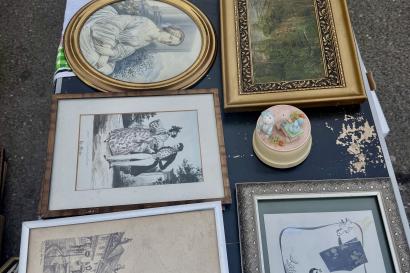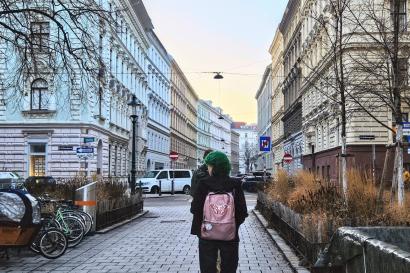So friends, by now, you have probably figured out that I have very positive feelings regarding my favorite Habsburg, the beloved Maria Theresa. In my time in Vienna though, I have realized that many are quick to only address her as Empress Maria Theresa, and as much as I am a great fan of Ms. Maria, I still hesitate to advocate for the exclusive use of this title. In fact, I would opt for the additional use of her regional titles, which are better able to reflect her own individual gravitas. Using particular titles such as, King of Hungary or Archduchess of Austria, recognizes the ruling legitimacy that Maria Theresa guaranteed for herself after the peace of Aix-la-Chapelle that finally recognized her right to rule the hereditary lands of the Habsburg house. Rather than use the title of Empress, a title she later derived from her husband’s ascent as German Emperor, let us honor her efforts as warrior queen and acknowledge her sovereignty over the lands she fought for. Let us accept her greatness and acknowledge her exceptionality as a distinct person of conviction; an exceptionality that I have but recently learned to appreciate.
Spending an afternoon with Maria Theresa, I have come to better understand her independent spirit as a person and ruler. Visiting the Imperial Crypt, in the Capuchin Church, finally meeting Maria Theresa in person, I was taken aback by her splendid coffin. Yes, splendid! The word truly captures her tomb’s majesty and regality. Although she may have passed on to another life, the etchings, war scenes, imperial insignia, coat of arms all conspire not only to beautifully decorate her sarcophagus but also to carry on her legacy of greatness, preserving her spirit of might and elegance. With such a grand site for a burial tomb, generations will remember the unique character that Maria Theresa was, as a mother to her people.
Leaving no piece of Maria Theresa behind, I made my way to to the St. Augustinian Church and paid my respects to her heart. Heart is, if nothing else, what Ms. Theresa truly had. It was out of her deep conviction of dynastic destiny that gave her the strength to stand potently alone, despite the animosity all of Europe had against her, not to mention the lack of faith from her advisors. Breathing in the hallow air of St.Augustine’s, I made my way to the room where her heart is preserved. Unfortunately I wasn’t actually able to go in for it was not normal “business hours”. Still, only divided by a thin wall, I felt as close to her as if I were her 17h child. Thinking alone on the other side of the wall, I reflected on this remarkable historical figure who not only held her own against the most advanced military genius of the 18th century, Frederick the Great, but also pushed through reform after reform, raising and dragging forward the education standards of her Empire. Driving the Habsburg education system to be the best that Europe had ever seen up until that year, her determined personal potency suddenly emerged before me.
But it wasn’t until meeting her again, between those 2 great Viennese Museums at Maria Theresien Platz, that her personal brutal strength cemented itself with all its substance. With a sword in one hand but with an extended open arm, her complex character crystallized. She was by no means willing to bow to misogynistic rulers and with the aid of her war ministers, she seized back her Empire. Yet, she also preoccupied the rest of her years focusing on humanitarian reforms, decreeing new protections for serfs against the excesses of their masters, and opening up the university to people of all religious beliefs. Her beautiful mix of intensity, precision, and kindness made her a force within European geopolitics, resurrecting Habsburgian might on the continent. Still, it was also with the same character that Ms. Maria endeared herself to the Hungarian nobles who rallied themselves in order to protect their estrogen filled King.
Thus my friends, after seeing her greatness assorted throughout Vienna’s urban landscape, why would I resort to referring to Maria Theresa as only an “empress”, an empty title that she gained through marriage, and not through her own strength? With so much that Maria accomplished on her own, why snub her historical achievements by ignoring her other titles that she gained through her actual efforts as a person? Indeed, if I were to meet her today I think I might say something along the lines of… “Well hello there, Maria Theresa, King of Hungary, Archduchess of Austria, Queen of the Czechlands, and Duchess of Milan, how is the Habsburg Monarchy doing today? And the kids? Oh another one! Well, that husband of yours, I don’t know how he keeps up with you. Oh you say he is an Emperor now? Well how lucky of him to have had a Hungarian King, Archduchess, and a feared military power behind him supporting his election. Well yeah, sure, in that case, had we’ve been married, I could have been Emperor. Oh what’s that? Another reform just got drafted? Oh! By all means, please go ahead, run a country, oh how silly of me, that’s right, I meant, go ahead, run a multi-national, multi linguistic, multi-ethnic Empire, that’s fine, no problem at all, no problem at all.”







